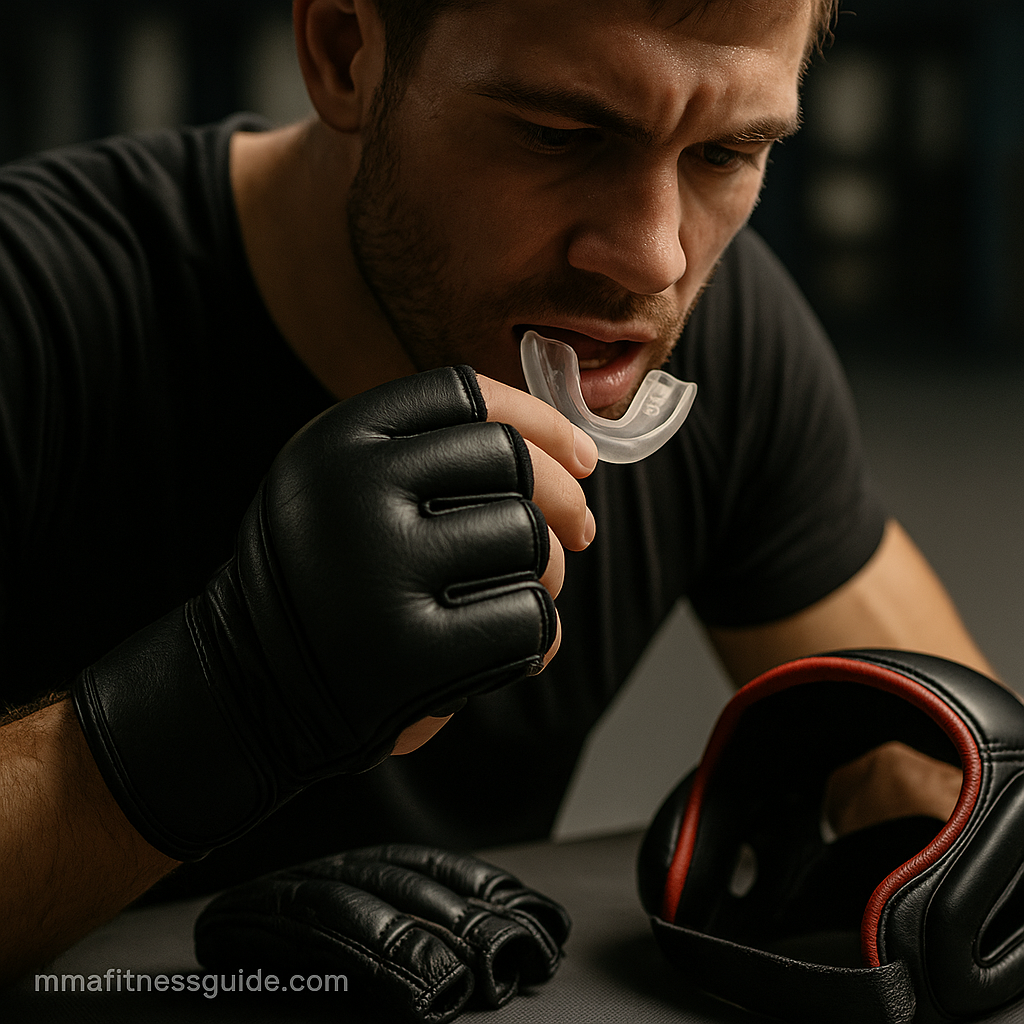
Protect Your Most Valuable Asset — Your Smile
When it comes to MMA gear, fighters often focus on gloves, wraps, or shin guards — but one of the most important pieces of equipment you’ll ever own is your mouthguard.
A properly fitted mouthguard doesn’t just protect your teeth. It cushions your jaw, absorbs impact, and can prevent concussions and soft tissue injuries. Whether you’re sparring lightly or going all-out in the cage, a quality mouthguard is non-negotiable.
Why a Mouthguard Matters in MMA
MMA combines striking, grappling, and clinching — which means constant contact and a high risk of hits to the jaw or face.
Without a mouthguard, even a glancing punch can cause chipped teeth, lip cuts, or worse — a broken jaw.
The right mouthguard:
- Absorbs shock from punches and kicks
- Protects teeth, gums, and tongue
- Helps stabilize the jaw and neck during impact
- Boosts confidence to train and spar harder
In short: it’s one of the cheapest forms of insurance you’ll ever buy as a fighter.
The Three Main Types of Mouthguards
1. Stock Mouthguards (Pre-Made)
These are the inexpensive, “one-size-fits-all” guards you’ll find at most sporting goods stores.
While easy to find, they offer minimal protection and poor comfort.
Pros: Cheap and accessible
Cons: Poor fit, hard to breathe or talk with, limited protection
Best for: absolute beginners or those in non-contact fitness classes (not recommended for sparring).
2. Boil-and-Bite Mouthguards
The most common type among MMA practitioners.
You soften the guard in hot water, bite down, and mold it to your teeth for a semi-custom fit.
Pros: Good balance between comfort, price, and protection
Cons: Fit can wear down over time; improper molding reduces effectiveness
Best for: regular training, sparring, and amateur competition.
Pro tip: When molding, don’t bite too hard — use firm pressure and suction for a snug but breathable fit.
3. Custom-Fit Mouthguards (Dentist-Made)
The gold standard for professional fighters.
These are designed from a dental mold of your teeth, ensuring the best protection and comfort possible.
Pros: Superior fit, maximum protection, allows natural breathing and talking
Cons: Higher cost ($100–$300), takes longer to make
Best for: competitive fighters, professionals, or anyone training several times per week.
Key Features to Look For
When choosing your mouthguard, pay attention to these crucial factors:
- Fit: It should stay in place without constant adjustment.
- Breathability: You should be able to breathe easily even with your mouth closed.
- Thickness: 3–5 mm around impact areas (front teeth and jawline).
- Material: High-density EVA (ethylene vinyl acetate) for optimal shock absorption.
- Durability: Replace your mouthguard every 6–12 months or sooner if it loses shape.
A good fit should feel secure but not restrictive — snug enough to protect, comfortable enough to wear for every round.
Mouthguard Care Tips
Your mouthguard is only effective if it’s clean and well-maintained. Follow these basics:
- Rinse before and after every use with cool water or mouthwash.
- Clean weekly with a toothbrush and mild soap (not boiling water).
- Store it in a ventilated case to prevent bacteria growth.
- Avoid leaving it in direct sunlight or hot environments (it can warp).
Pro tip: Keep a backup mouthguard in your gym bag — losing one before sparring can ruin your day.
Best Brands for MMA Mouthguards
Some of the most trusted and tested brands among MMA fighters include:
- Shock Doctor – reliable and affordable boil-and-bite options.
- OPRO – used by UFC athletes; excellent protection and airflow.
- SISU – ultra-thin and comfortable, ideal for talking and breathing.
- Gladiator Custom Mouthguards – premium dental-grade fit for pros.
Each has options for different budgets, so choose based on your training intensity and frequency.
Final Thoughts: Fit Equals Confidence
In MMA, confidence often comes from knowing you’re protected.
A well-fitted mouthguard lets you train harder, spar smarter, and stay in the game longer.
It’s not about looking tough — it’s about fighting smart.
As Bas Rutten once said, “If you want to protect yourself, don’t just cover up — prepare properly.”
Your mouthguard is the first step toward that preparation.
